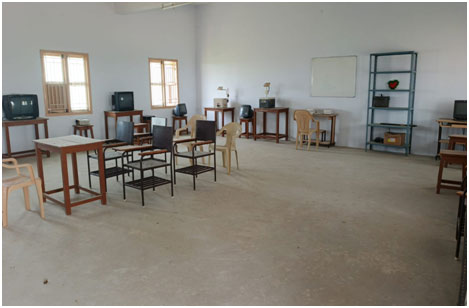Laboratory
Laboratories are one of the characteristic features of education at all levels. It would be rare to find any education course without a substantial component of laboratory activity. It is taken for granted that experiment work is a fundamental part of education course. Thus the development of experiment skills among the students is often a suggested justification. Enabling students to personally experience the joy of discovering principles and relationships. Allowing students to actually engage in doing rather than being a passive observer or recipient of knowledge in the learning process.
Our laboratories are well equipped with required instruments and other materials.
Laboratories Provided are:
Psychology Laboratory
Computer laboratory
Language Laboratory
Social Science Laboratory
Mathematics Laboratory
Physical Science Laboratory
Biological Science Laboratory
PSYCHOLOGY LABORATORY:
Educational Psychology is the systematic study of the educational growth and development of a child. Educational Psychology is its application in the field of education with the aim of socializing man and modifying his behavior. It describes and explains the learning experiences of an individual from birth through old age. “
Psychological tests have been prone to possess great utility in many spheres like guidance, appointments, selection for tracing, classification, according to the level of intelligence, prediction, diagnosis and research in the field of education.
We have a psychology lab that trains the students in applying the knowledge of principles of educational psychology and techniques to facilitate optimum development of integrated personality. It provides First-hand experience to students teachers in conducting psychological aspects applicable to classroom teaching-learning situations. The trainees conduct experiments in the lab under the guidance of psychology lecturers.

Conducted Experiments are:
Verbal test of intelligence
Non-Verbal test of Intelligence
Memory Test
Mirror Drawing Test
Division of attention
Questionnaire of teacher attitude
COMPUTER LABORATORY:
We are having 25 computers with multimedia software and internet facility; UPS with back up facility for 24 hours. Itis useful for making the PowerPoint presentations for the teacher students under the subject Information and Communication Technology. The faculties are computer literate.
Teaching and Learning:
Skill Development: Computer labs provide a space for students to learn and practice essential digital skills, such as coding, data analysis, multimedia creation, and web design.
Interactive Learning: They facilitate interactive learning experiences through simulations, online resources, and educational software.
Research and Project Work: Students can use computer labs to conduct research, analyse data, and create technology-based projects.
Access to Technology: They ensure equitable access to technology for all students, regardless of their access at home.
E-Learning: Computer labs can be used for e-learning, where students can access online courses, materials, and resources.

LANGUAGE LABORATORY:
The aim of Language lab is developing the communicative skills of the Students. Well-equipped English lab and are available. English Lab is having “Lingua phone”, Audio equipment’s with headsets and is helping the students to develop their English pronunciation and teaching method. It supports English methodology students to feel more comfortable in their practice sessions. lab is also having all the facilities which supports the teacher students to develop their style of teaching and involvement to the language and its culture.
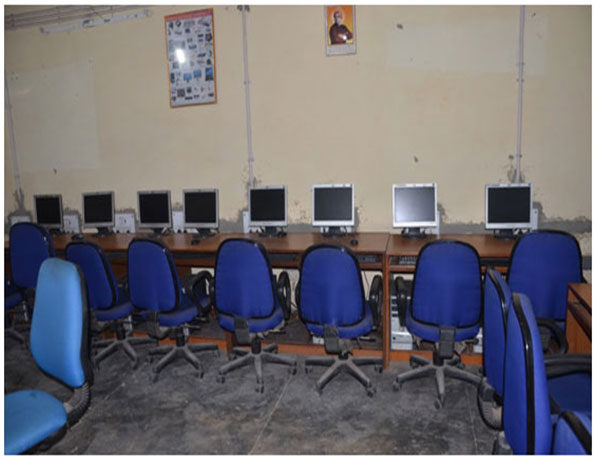
Mathematics Laboratory:
It is a unique room or place, with relevant and up-to-date equipment known as instructional materials, designated for
the teaching and learning of mathematics and other scientific or research work, whereby professionally qualified Lecturer readily interact with the students on specified set of instructions. To an approach to teaching and learning of mathematics which provides opportunity to the learners to abstract mathematical ideas through their own experiences, that is to relate symbol to realities. The functions of mathematics laboratory include the followings:
- Arousing interest and motivating learning.
- Cultivating favourable attitudes towards mathematics.
- Enriching and varying instructions.
- Encouraging and developing creative problems solving ability.
- Allowing for individual differences in manner and speed at which students learn.
- Making students to see the origin of mathematical ideas and participating in “mathematics in the making”.
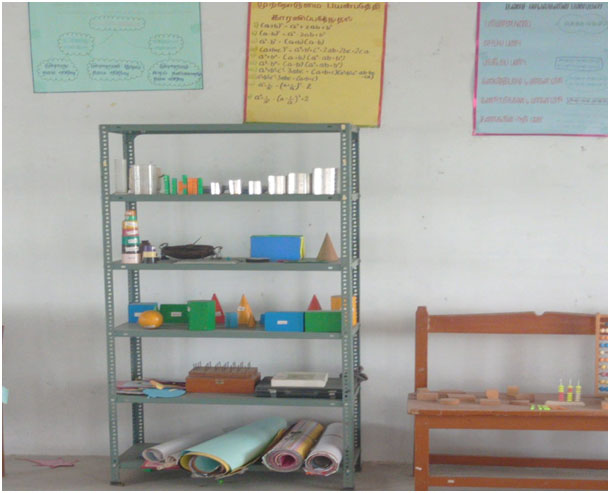
Physical Science Laboratory:
This helps the student to develop a broad array of basic skills and tools of experimental physics and data analysis. It helps the students to understand the role of direct observation in physics and to distinguish between inferences based on theory and the outcomes of experiments and develop collaborative learning skills that are vital to success in many lifelong endeavours.
It gives the student an appreciation of the way chemistry, as a science, works. Above all, the aims offer possibilities where the student learner can be challenged to think, to argue, to weigh evidence, to explore chemical ideas.
There is an opportunity to make chemistry real, to illustrate ideas and concepts, to expose theoretical ideas to empirical testing, to teach new chemistry and as a source of evidence in enquiry and to learn how to devise experiments which offer genuine insights into chemical phenomena. It helps to learn the skills of observation and the skills of deduction and interpretation. The Intellectual stimulation is connections with the ‘real world’, raising enthusiasm for chemistry.
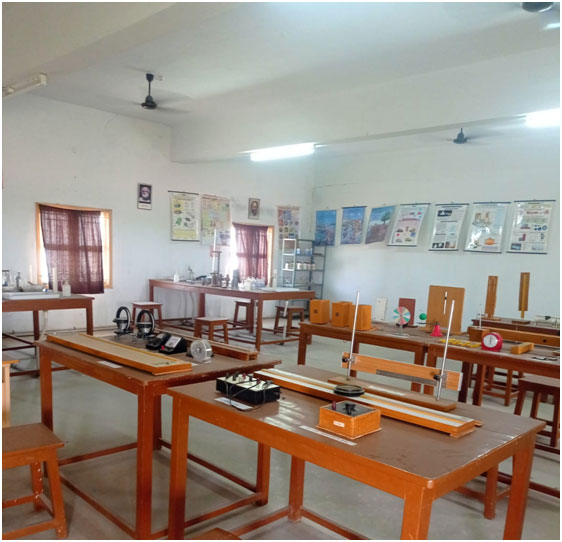
Biological Science Laboratory:
The study of biology provides students with opportunities to develop an understanding of our living world. Biology is the study of life and its evolution, of organisms and their structures, functions, processes, and interactions with each other and with their environments. The knowledge of biology includes scientific data, concepts, hypotheses, theories, methodology, use of instruments, and conceptual themes.
The students will use the processes and materials of science to construct their own explanation of biological phenomena. They observe, collect data and interpret data of life processes, living organisms, and/or simulations of living phenomena. The distinction between laboratory and traditional classroom learning is that activities are student-centered, with students actively engaged in hands-on, minds-on activities using laboratory or field materials and techniques.
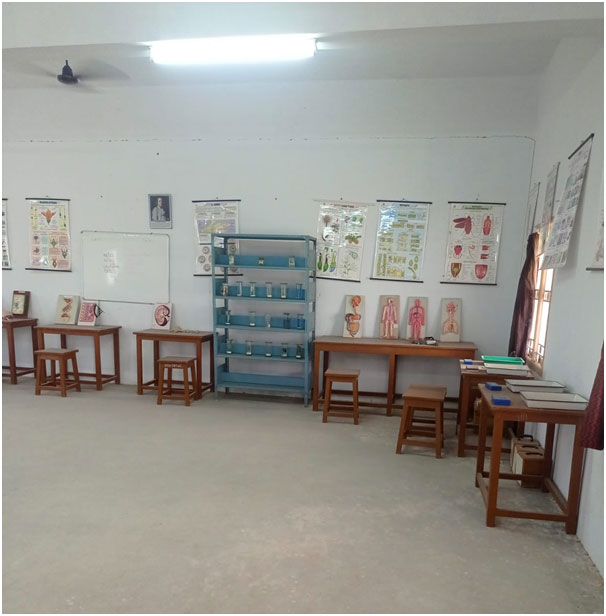
ARTS AND CRAFT RESOURCE CENTRE:
Art lab is the place where learners can express their artistic views and can express their imagination power. Students can also build a personality of positive thinking with proper attitude. This lab is the place of experiments with creativity. Various types of activities related to art and craft such as waste material, utilization, Painting, Pot decoration, Flower arrangement etc. have conducted. Our experienced expert teachers heartily help the learners to show their talent.
The Uses of Art Lab: -
Help use to re-imagine our current uses of art within and across the field of culture, health, housing and commerce.
Build new forms of citizenship based on creativity and social responsibility.
Art would have developed enough motivations and interest among them in the subject.
Art education enables students and faculty to fully experience the joy of teaching learning.
Art Lab Equipment’s: -
Painting board
Chairs
Stool
Table
Craft Material
Canvas
Paint Brush
Water Color
Color Sheets
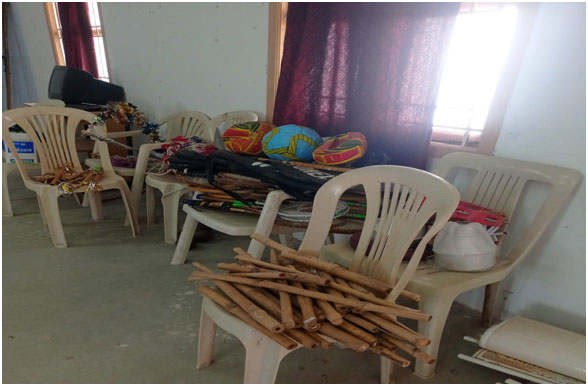
HEALTH AND PHYSICAL EDUCATION RESOURCE CENTRE:
Regular basic health checkup facilities include Thermometer, Glucometer (for glucose level test) Sphygmomanometer (for Blood pressure), Stethoscope, Weighting machine, Microscope, Treadmill, Blood T.C. and D.C. counters, W.B.C. and R.B.C. pipettes etc. to provide the opportunity of primary findings on the health parameters of students, teachers and other persons concerned.
For providing students adequate resources to excel in sports and games by creating a favorable environment imbibing on the ethics of sportsmanship various items like chess, carom, badminton, volley ball, football, cricket etc. have been included here. Due professional competence can be developed through such physical and emotional culture.
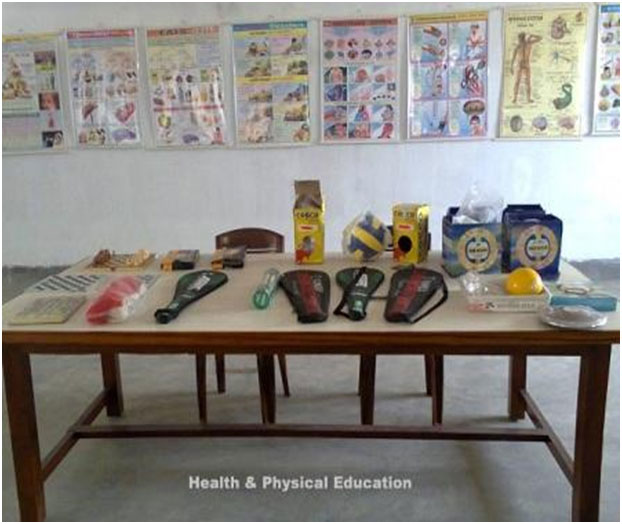
CLASS ROOMS:
The Institute has spacious architecturally designed lecture and tutorial rooms, airy and electric gadgets, glossy chalkboards and flannel boards all intact, furnished with adequate modern furniture.
Class Room Ethics: -
Passion for teaching learning and Research
Respects for students
Deeper understanding
Clarity of expression /thought
Fluency of Language
Discipline
Self-esteem
Sound subject knowledge
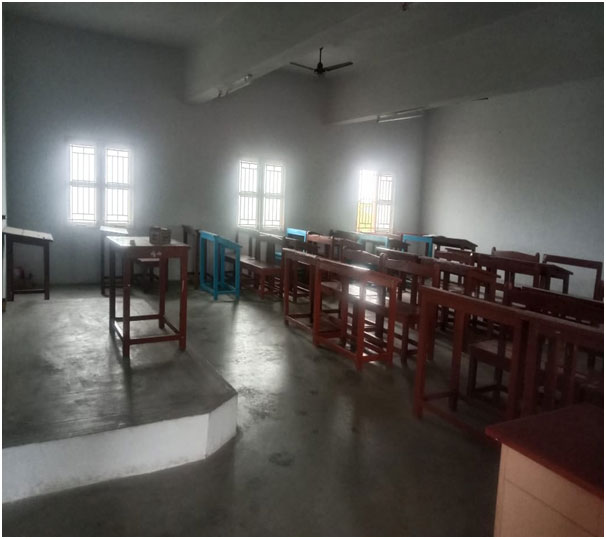
ICT RESOURCE CENTRE:
Computer Laboratory More than 20 computers with Internet connection.
Hardware:
VCR, CD-ROM, LCD Projector, Digital Camera, Scanner, Color Printer, Multimedia network, Web Camera, Speakers, Fax, Xerox machine, Epidiascope, OHP,etc.,
Software:
Ms Windows Xp, Ms Office 2007 Turbo C , C++,Open Source Software, Red hat, Debian
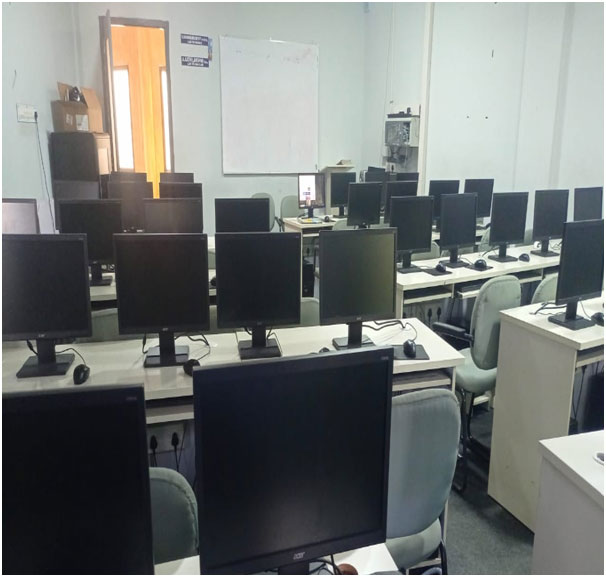
THE MULTIPURPOSE HALL:
The multipurpose hall is used for assembly, cultural programme, guest Lecturers and any mass oriented programme. The hall was equipped with public Addressing System and LCD presentation facilities.
The college has a spacious multi-purpose hall well equipped with latest display aids. It has the seating capacity for more than 450 persons. It is mainly used for conducting seminars, workshops, conferences and group discussions for faculty, students, peer group and guest experts. Along with all these, a large number of co-curricular activities like celebration of festivals, important days, sports activities national functions and college functions are hosted with great fervor and gaiety in this hall.
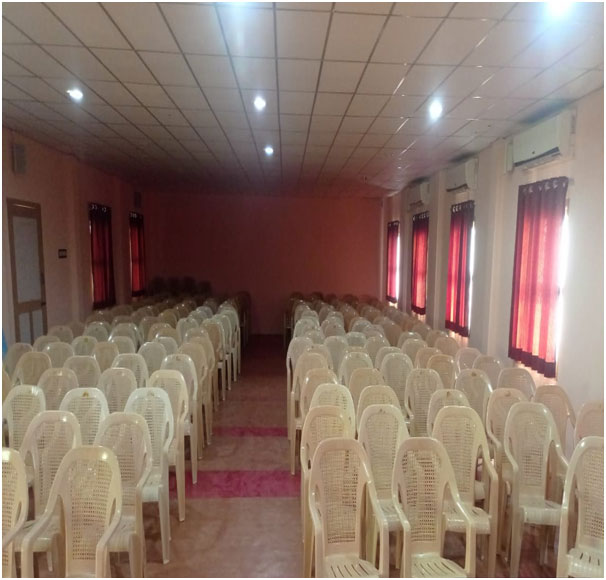
THE EDUCATIONAL TECHNOLOGY LAB
The Educational Technology Lab offers interactive activities to familiarize B.Ed. and M.Ed. students with many of the hardware and software. The lab is available for all faculty members and students to use for the purpose of integrating assistive and instructional technology content into teacher preparation and doctoral training programs in the College. The lab is also used for International and National Seminars and Workshops.
E.T. Lab. Timings and Rules:
The E.T. lab remains open from 9.00 a.m. to 4.00 p.m. from Monday to Friday and from 9.00 a.m. to 2.00 p.m. on Saturday. The lab offers its services on Sundays during National or International Seminars:
- All the students & teachers can access the Lab. during College hours.
- Principal may allow to make its use for others.
- Laptop and other equipment/s may be issued with prior permission.
- Any defect or fault in equipment/s should be noticed before issue.
- Any defect or fault in equipment/s after issued is the sole responsibility of the person whom the equipment/s is issued.
- Any equipment is issued for maximum three working days. Beyond this Principal’s recommendation is must.
Code of conduct in the E.T. Lab.:
The use of mobile phones other than educational purpose is prohibited. Phones should either be switched off, or set to silent mode. E.T. Lab services:
E.T. lab services are available to all the faculty members, M.Ed. students. The following services are available:
- Issue of Laptop and other equipment
- Organizing International & National Seminars
- Demonstration and Discussion Lessons
